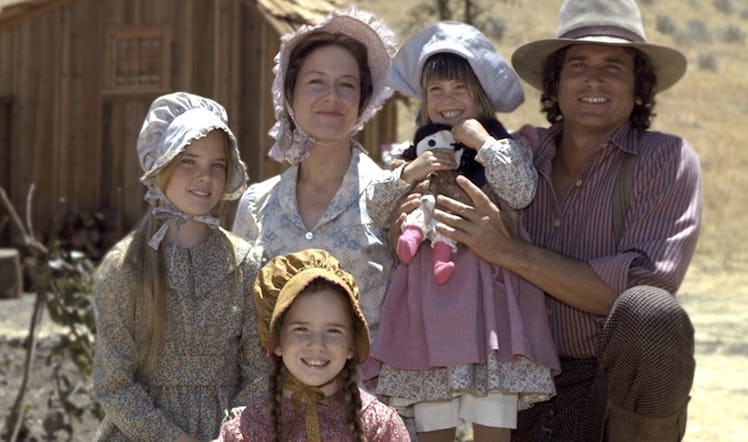Is ‘Little House on the Prairie’ Racist? Laura Ingalls Wilder Controversy Explained
Wilder's name was recently removed from a big children's book award.

A huge award for children’s literature will no longer be called The Laura Ingalls Wilder Award. Over the weekend, the Association for Library Service to Children voted unanimously to remove the author’s name from a prestigious award given to lasting children’s books and rename the honor “The Children’s Literature Legacy Award.”
The ALSC said the decision was made because “Wilder’s legacy, as represented by her body of work, includes expressions of stereotypical attitudes inconsistent with ALSC’s core values of inclusiveness, integrity, and respect, and responsiveness.” In other words, the ALSC said Little House on the Prairie and the rest of the books in the series are racist.
The question several parents who loved the books as children might be asking themselves is simply: is this true? Is Little House on the Prairie truly racist? The mega-popular book series was famously made into an equally popular TV series by NBC which aired from 1974-1983. However, like the books, that series hasn’t aged well. And the reason why is that the basic premise of the stories do, in fact, tend to demonize indigenous Native Americans.
Something readers may tend to forget is that Little House on the Prairie and the related books in the series are something of a hybrid in terms of historical fiction. Because Wilder used her actual family’s name in the stories, some have taken the book for historical fact. But, as many teachers and scholars have pointed out for years, the books are riddled with historical errors, most of which are connected to United States policy toward native Indians. The characters of “Pa” and “Ma” are frequently furious and fearful of Indians, which while realistic to a point, certainly doesn’t tell the entire story of history.
However, some educators and parents believe that the family adventure contained in the Litte House books can be enjoyed, as long as children are made aware of the insensitive and factually wrong aspects of the books. In other words, some feel that there are “teachable moments” inside of the writing, which can be opportunities to actually demonstrate why racism is bad, and highlight the outright hostility the United States had toward the indigenous people of North America. Defenders of the books have also pointed out that the fictional child version of “Laura” actually questions her parents’ racism in the books on more than one occasion.
Still, the problematic nature of the Little House books is tough to overlook. The white settlers are clearly on the land of Osage tribe. Demonizing those Native Americans as the defacto bad guys of a series of books might be a way to teach racism, but it makes sense that the ALSC doesn’t want to continue to name its highest honor after these stories.
To be clear, the ALSC is not advocating the removal of the Little House books from school libraries. They simply are no longer naming their highest award after Laura Ingalls Wilder.
This article was originally published on